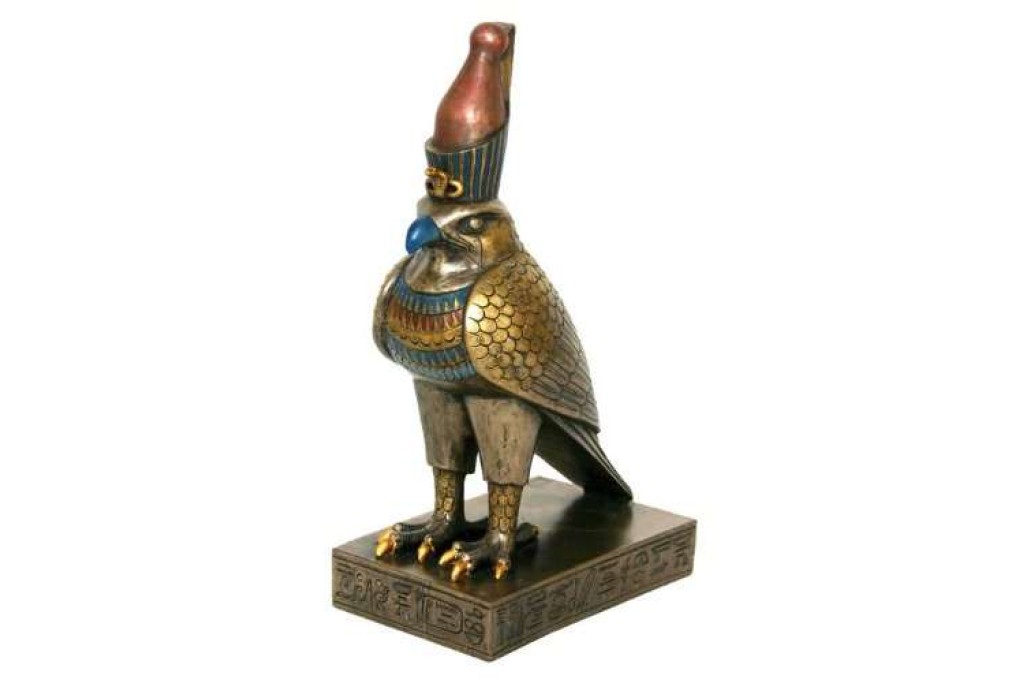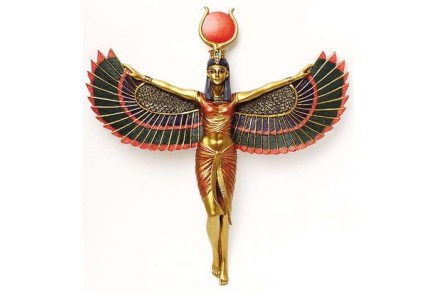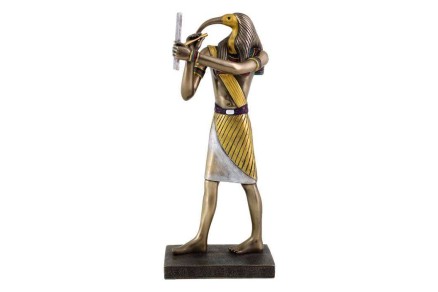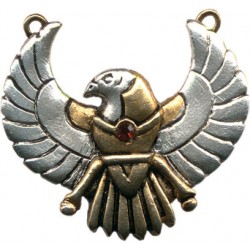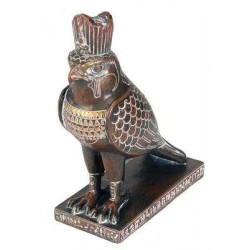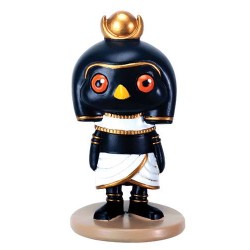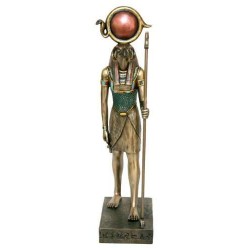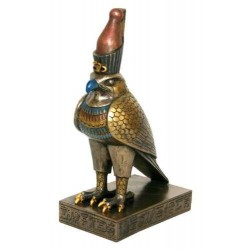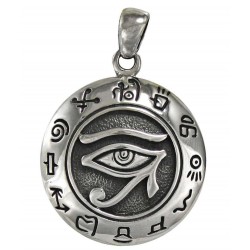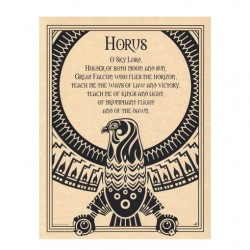Horus: The Mighty Falcon-Headed God of Ancient Egypt
- June 06, 2023
- 9120
- 0
In the vast pantheon of ancient Egyptian gods, one deity stands out as a symbol of power, protection, and divine kingship: Horus. With the head of a majestic falcon and the body of a human, Horus holds a significant place in ancient Egyptian mythology and worship. From his role as a protector to his epic battles against evil, Horus embodies the strength and majesty of the falcon.
Mythology and Origins:
According to ancient Egyptian mythology, Horus was born to the goddess Isis and the god Osiris. He was believed to be the rightful heir to the throne of Egypt, destined to avenge his father's murder by the treacherous god Set. The story of Horus's battles against Set forms a central theme in Egyptian mythology, representing the eternal struggle between good and evil.
Symbolism and Iconography:
The falcon-headed representation of Horus carries profound symbolism in ancient Egyptian culture. The falcon, known for its keen eyesight and swift flight, symbolized divine kingship, vigilance, and authority. Horus's falcon eyes were associated with the sun and the moon, representing his all-seeing and protective nature. His connection to the sky and the heavens positioned him as a powerful mediator between gods and humans.
Role as a Protector:
Horus was revered as a benevolent protector deity, guarding both the pharaoh and the entire kingdom of Egypt. Egyptians believed that Horus watched over the land, ensuring its prosperity and safeguarding its people from harm. The pharaoh was considered the earthly manifestation of Horus, reinforcing his divine kingship and his responsibility to maintain order and justice in the kingdom.
Worship and Temples:
Throughout ancient Egyptian history, numerous temples were dedicated to the worship of Horus. One of the most renowned was the Temple of Horus at Edfu, where grand rituals and ceremonies were conducted to honor and appease the falcon-headed god. Priests served as intermediaries between the people and Horus, performing sacred rituals and offering prayers for protection, prosperity, and guidance.
Legacy and Influence:
The influence of Horus extended beyond ancient Egypt. In Egyptian mythology, he played a crucial role in the afterlife journey of the deceased, guiding them to the realm of the gods. Horus's symbolism and mythology also left a lasting impact on Egyptian art, architecture, and symbolism, with his falcon image appearing in hieroglyphs, amulets, and temple reliefs.
Today, the legacy of Horus endures, captivating the imagination of scholars, enthusiasts, and those drawn to the mysteries of ancient Egypt. His symbolism as a protector, his association with divine kingship, and his tales of valor continue to inspire awe and fascination.
Horus, the falcon-headed god of ancient Egypt, remains an iconic figure in mythology and a testament to the rich cultural heritage of the ancient Egyptians. As the protector and embodiment of divine kingship, Horus symbolized strength, vigilance, and justice. His battles against evil and his role as a mediator between gods and humans reflect the eternal struggle for balance and harmony. Delve into the captivating world of Horus and unlock the secrets of this
Related Posts
The Egyptian Goddess Isis: A Journey into History, Mythology, and Worship
- 10147
- 0
The goddess Isis reigns as one of the most revered and influential deities. Renowned for her beauty, power, and wisdom, Isis holds a significant place in Egyptian culture and continues to captivate th..
Thoth: The Egyptian God of Wisdom, Magic, and Writing
- 9215
- 0
Thoth, or Djehuti as he was known to the Egyptians, was one of the most important gods in ancient Egyptian religion. He was the god of wisdom, magic, writing, and science.

